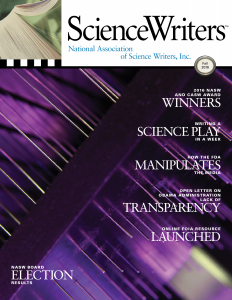By Jonathan Peters
If confusion is the first step to knowledge, FOIA (Freedom of Information Act) users must be geniuses. Fee categories. Pre-determination agency actions. Multitrack processing. Administrative appeals. Glomar responses. In some ways, the FOIA is as impenetrable as it is helpful, but a new resource wants to change all that: FOIA Wiki, which launched in beta Oct. 3.
It’s a free and collaborative FOIA resource created by the Reporters Committee for Freedom of the Press, with support from the FOIA Project, MuckRock, FOIA Mapper — and soon users like you.
“FOIA is somewhat of a paradox,” says Adam Marshall, the Knight Litigation Attorney at the Reporters Committee. “On the one hand, the law exists for the use of the public — to promote democratic governance by keeping us informed about what our government is up to. But at the same time, FOIA is incredibly complex, making it difficult for the public to use effectively. The statute is dense and poorly organized, and there’s 50 years of case law interpreting it. Reporters, members of the public, and even lawyers need assistance.”
Marshall said he and the supporting organizations conceived of FOIA Wiki nearly a year ago, when they took stock of the FOIA resources they and others provide for journalists, such as the Federal Open Government Guide and the FOIA Appeals Guide.
“I’m constantly amazed with all the great things people are doing when it comes to FOIA, and [we] wanted to create a place where everyone can bring that energy together and support the right to know that belongs to all of us,” Marshall says.
That place includes a main page that lists seemingly every imaginable FOIA topic, from the law’s history to its nine exemptions. Clicking a topic takes you to a page that introduces the topic in plain language, before subdividing it to address component parts. If you use Wikipedia, it will look and feel familiar.
For example, if you click “Making a FOIA Request,” the page tells you it’s important to consider several things when preparing a FOIA request: any procedural requirements laid out by the statute and agency, as well as the request’s specificity. Then, the page covers each of those topics in some detail (e.g., a FOIA request is sufficiently specific “when it allows ‘a professional employee of the agency who [is] familiar with the subject area of the request to locate the record with a reasonable amount of effort.’”). And, notably, at the bottom of the page is a list of all recent federal trial court opinions related to the topic.
(It’s worth noting that FOIA Wiki focuses on federal, rather than state, sunshine law.)
FOIA Wiki also includes a page for just about every federal agency where you might send a FOIA request, even the American Battle Monuments Commission (which I didn’t know was a thing until moments ago). These pages provide contact information for each agency, and by pulling data from MuckRock, FOIA Project and FOIA Mapper, they list the agency’s average response time and fee rate, among other data points — and they note all FOIA cases involving the agency.
The site features a forum, too, where users can discuss common FOIA problems and solutions, all of which could be fed back into the main pages. Indeed, that’s one of the project’s distinguishing characteristics as a wiki: it’s an interactive and evolving resource.
“The wiki can serve as a central hub for contributions from people across the FOIA community,” Marshall says. “A reporter might have great tips for getting information from the Department of Homeland Security, for example, and a lawyer might have tons of experience with Exemption 4. Using the FOIA Wiki, both can contribute the information they have, and the public as a whole benefits from the combined knowledge.”
Plus, the law can change quickly. In the last year or so, two D.C. Circuit opinions changed how FOIA works in the digital age. The first, Cause of Action v. Federal Trade Commission, clarified the meaning of “representative of the news media” for fee purposes, while the second, Competitive Enterprise Institute v. Office of Science and Technology Policy, declared that public employees’ emails are not outside the FOIA’s scope just because they’re stored on a nongovernmental server.
“Using a wiki allows us to rapidly take account of these developments so everyone has the most up-to-date information about the law in a useful, online format,” Marshall says.
“Just Launched: A Tool That Will Make Life Easier for FOIA Reporters,” Columbia Journalism Review, Oct. 3, 2016. Jonathan Peters is CJR’s press freedom correspondent.
(NASW members can read the rest of the Fall 2016 ScienceWriters by logging into the members area.) Free sample issue. How to join NASW.




